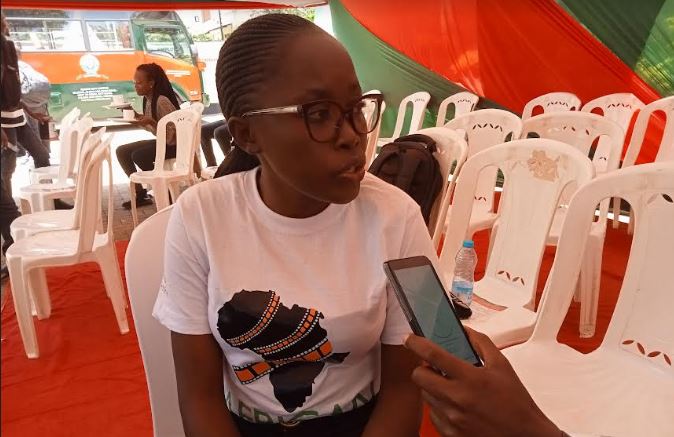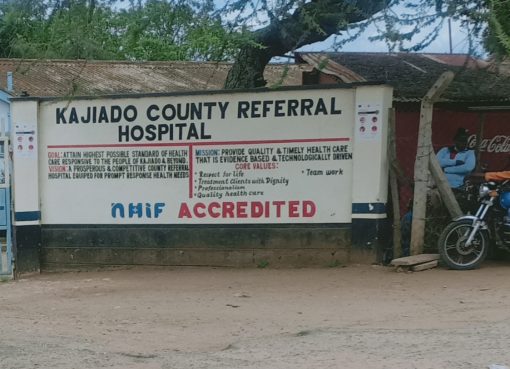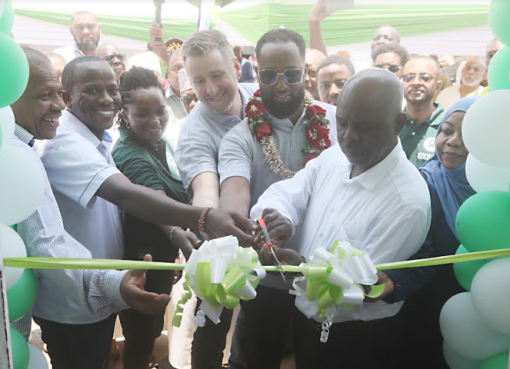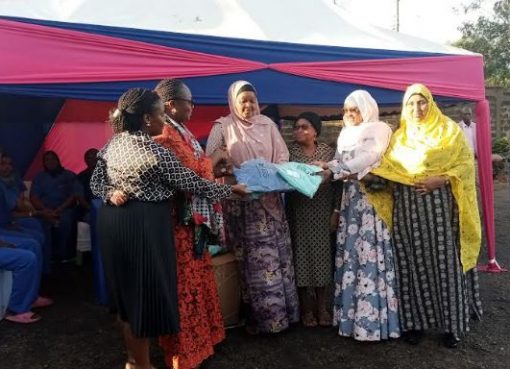At 28 years old, Sharon Jessica Odhiambo is one of the sickle cell warriors and advocates who is at the forefront of fighting and creating awareness among the public about sickle cell disease through her Peperusha Binti Community Based Organisation (CBO), established in 2019.
“What really motivated me to positively make noise about sickle cell disease is that I lost very many friends through it, something that can be avoided in the community,” says Odhiambo.
As the Executive Director of the organisation, Odhiambo explains that the disease is one of their core programmes, and there are so many things that are yet to be done for people living with the disease.
“My childhood wasn’t easy, and my parents had to accept it, and with time, I learned to live and cope with every situation. They have all been my biggest support and inspiration, thus giving me the courage to face life in so many ways,” says Odhiambo.
Despite the challenges of being sick once in a while, she says that her school life was normal, just like the rest of the children.
“There are very many challenges facing those with the disease in the community, especially those from vulnerable communities or underprivileged families who can’t afford good healthcare services and medicine,” Odhiambo said during an exclusive interview with KNA.
On that day, Odhiambo joined fellow warriors and champions on the rolled-out fundraising programmes and the need to sensitise the media professionals in Kisumu on Sickle Cell Awareness Month of September.
To achieve this noble cause, she informs us that the organisation is continuously advocating to eradicate the notion that the disease is a curse in the community. Similarly, they have also rolled out various fundraising programmes to support underprivileged children and families suffering from the condition.
They normally convene an annual event dubbed ‘Kuki for Champions,’ where they bring people together and speak to them about sickle cell disease and how it affects the community.
“We use the money that we raise to buy drugs for children living with sickle cell disease from underprivileged families. When we began in 2021, we were able to support 10 children, and in 2022, we were privileged to assist five children to buy drugs for three consecutive months,” she says.
On a positive note, the CBO is planning to hold the annual event, seeking to reach 20 children and above, depending on the amount of money they will raise in October this year.
Additionally, other programmes undertaken by Peperusha Binti include empowering young women on Sexual Reproductive Health (SRH), Gender-Based Violence and Economic Empowerment through teaching them table banking, soap making, mat making, and bead making.
“These are things that can bring them income so that one does not feel obligated to stay in a violent or abusive marriage. They always have the will to move forward with their lives because they have something to support their children and themselves in harsh economic times,” notes Odhiambo.
To augment these efforts, the organisation has a programme christened Binti Dialogue, where they have conversations with adolescents on Gender-Based Violence through Art.
‘‘For one to get the attention of young girls, one needs to engage them and be freely able to express what they feel about GBV by drawing and colouring things. We also organise entertainment events,” Odhiambo notes.
She expresses her satisfaction with the fact that the community that they work with, like girls and young women, has embraced their initiatives. In this way, they help to spread a good message about Peperusha Binti’s activities and support their families, friends, and other women groups.
“This has made us attract invitations to other women’s groups where we drive home the same issues they need information on,” she adds.
“On average, we have impacted over 5,000 girls with information, and sometimes we provide sanitary towels to them. We have also impacted 3,000 women through the interactions and dialogues that we hold,” the executive director says.
According to January 2023 data published on the Jaramogi Oginga Odinga Teaching and Referral Hospital website, a total of 21 out of 100 children in Kisumu are born with the sickle cell trait.
It further notes that an estimated 4,000 children are born with the disease annually.
The report informs us that sickle cell disease is an inherited disease that affects haemoglobin in an autosomal recessive pattern. Males and females are affected equally, and both parents must carry the abnormal genes, even if they have no symptoms, for their child to be affected.
There is a 25 per cent chance that a child may get sickle cell disease (HbSS) when both parents carry a single gene mutation (HbAS) (sickle cell trait), a 25 per cent chance that a child will be unaffected (HbAA), and a 50 per cent chance that they will inherit the genetic mutation (HbAS) as an asymptomatic carrier (this probability occurs in every single pregnancy).
The likelihood of parents having children with sickle cell disease is 25 per cent if both parents are carriers of HbAS, 50 per cent if one parent has HbAS and the other one has HbSS, and 100 per cent if both parents have HbSS.
Currently based in Kisumu Central Sub-County, Peperusha Binti covers informal settlements in the county and neighbouring counties like Homabay County because people are in dire need of the services. The organisation interacts much more on social media platforms with the people for more assistance.
One of the sticking challenges they face, Odhiambo notes, is the persistent lack of drugs that can be used to manage sickle cell disease, as it is incurable. “So, what happens when there are no medications or drugs like hydroxyurea, pallodrin, folic acid, and even PLV? So many people will die,’’ she says.
Odhiambo says that warriors of sickle cell are not being given access to employment opportunities because employers see that these people tend to get sick frequently and are not up-to-task with the services required in companies, civil organisations, and the government.
Rampant discrimination, she notes, is one of the common issues the organisation is tackling through awareness creation in the community.
“We know of people who have lived long with the disease. Some are 35 and 45 years old. This is an example that should give us hope that if children are well taken care of by the provision of drugs and access to gainful employment, then we can move ahead as a better society,” she says.
Odhiambo reveals that these drugs are not cheap, and parents or guardians have to part with Sh2,800 per month, with one tablet of Hydroxyurea retailing at Sh70 and Pallodrin going for Sh50.
She says the organisation does not receive any funding from the national or county government on issues of sickle cell but continues to receive support from corporations, hospitals, and non-governmental organisations.
“We appeal to both tiers of government to include sickle cell disease in their health budgetary allocations, proper policies, and NHIF to cover all forms of diseases just like they cover HIV, malaria, and tuberculosis,” says Odhiambo.
“This will greatly ease the burden on the parents by giving these drugs at affordable prices or even for free from the public hospitals,’’ she adds.
By Rolex Omondi





